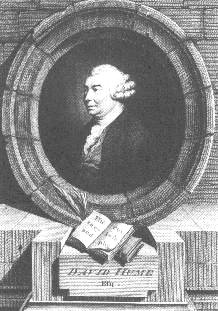 |
 |
 |
 |

After entering the University of Edinburgh at the age of twelve and briefly studying law, Hume traveled to France in 1734 and began writing what he hoped would be his philosophical masterpiece, A Treatise of Human Nature (1740). Though the work, with its skeptical consideration of the idea of causality, is now considered a classic of empiricist philosophy in the tradition of Locke and Newton, it was largely ignored on its first publication.
After a series of more successful Essays (1742), Hume presented the ideas from his Treatise again, this time in more accessible form: the Enquiry concerning Human Understanding (1748) and An Enquiry concerning the Principles of Morals (1751, and an important influence on Hume's friend, Adam Smith). From 1754 to 1761 he worked on a six-volume history of England. His last major work, Dialogues concerning Natural Religion, appeared posthumously in 1779, and attacked all rational arguments for the existence of God.
Wollstonecraft quotes from "A Dialogue" in the 1777 edition of An Enquiry Concerning the Principles of Morals.